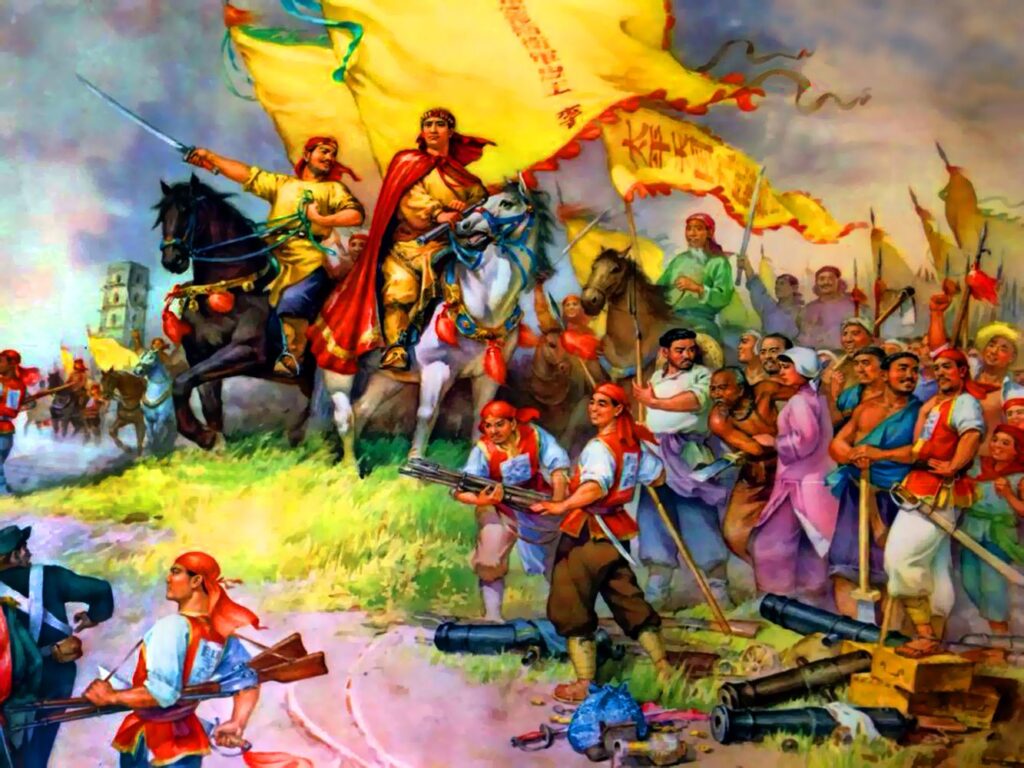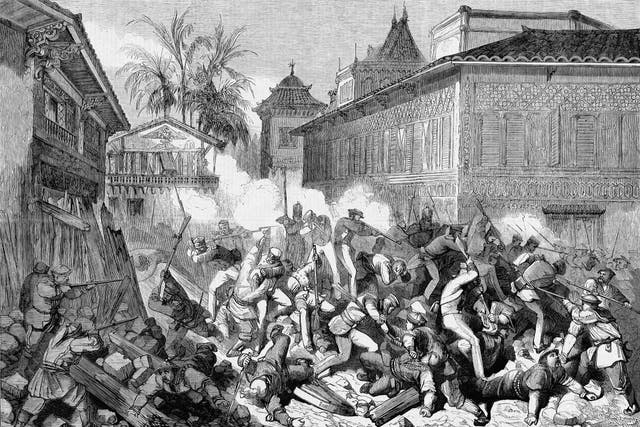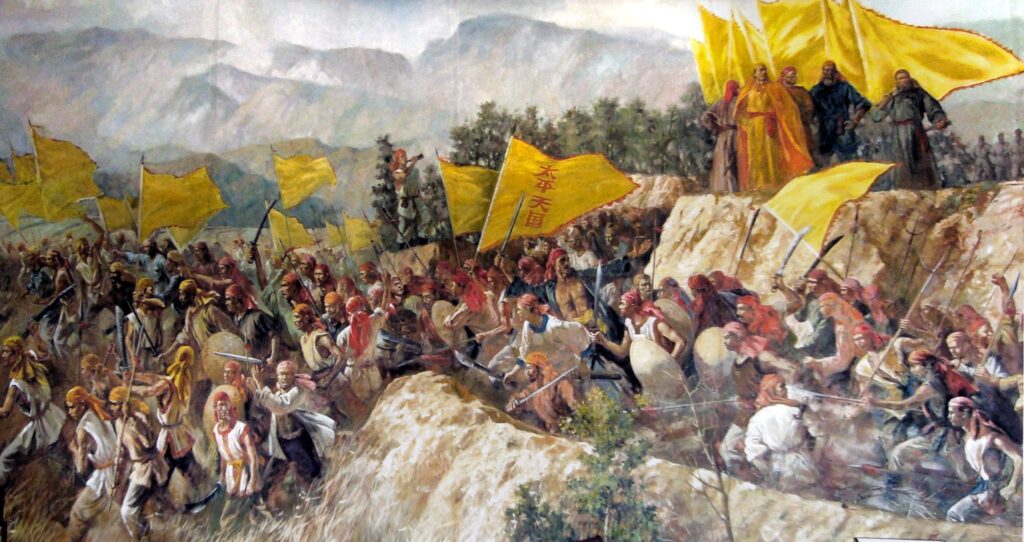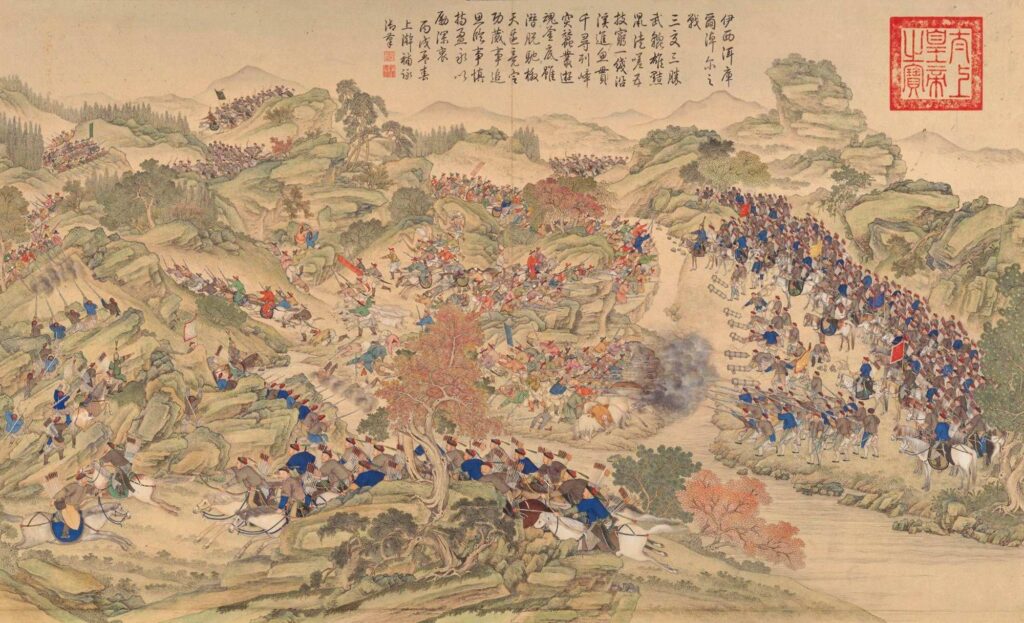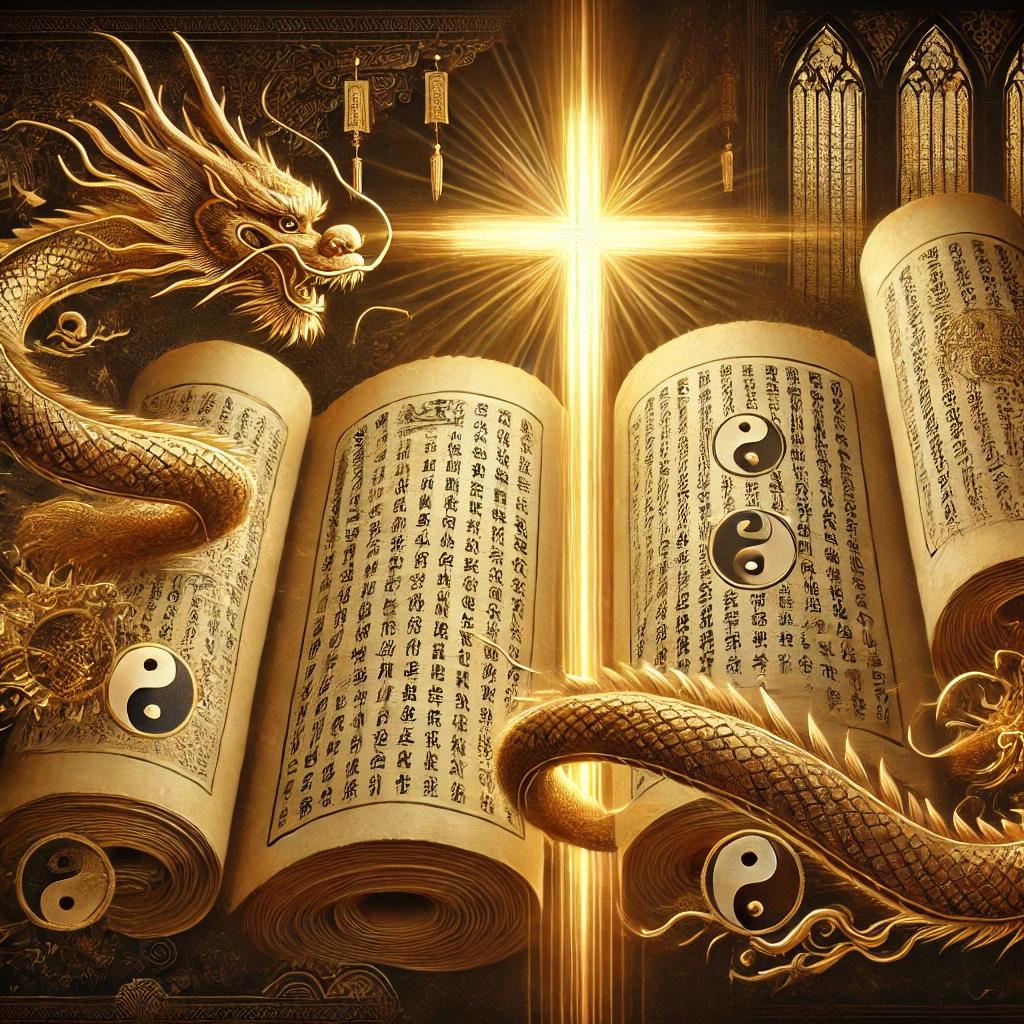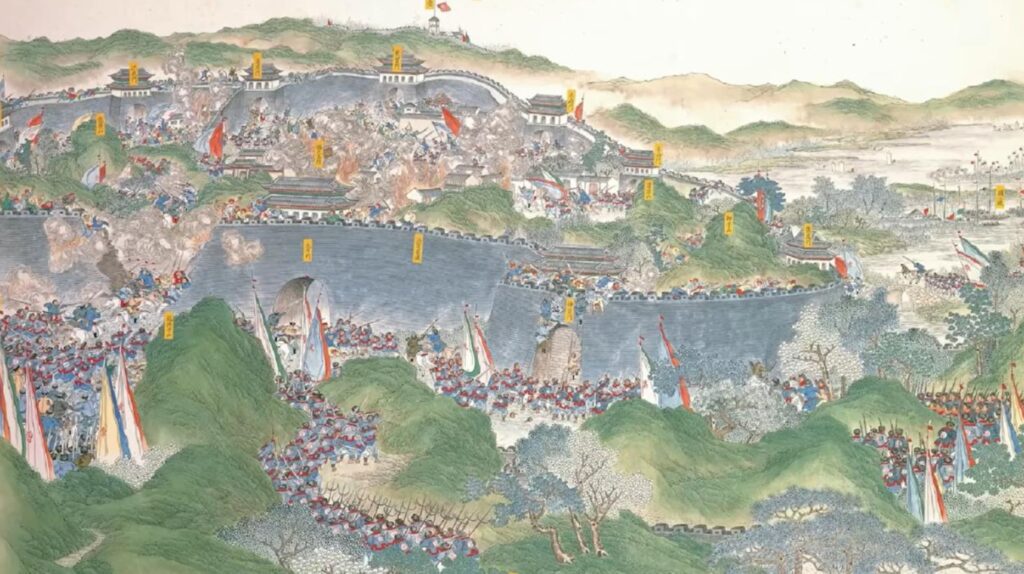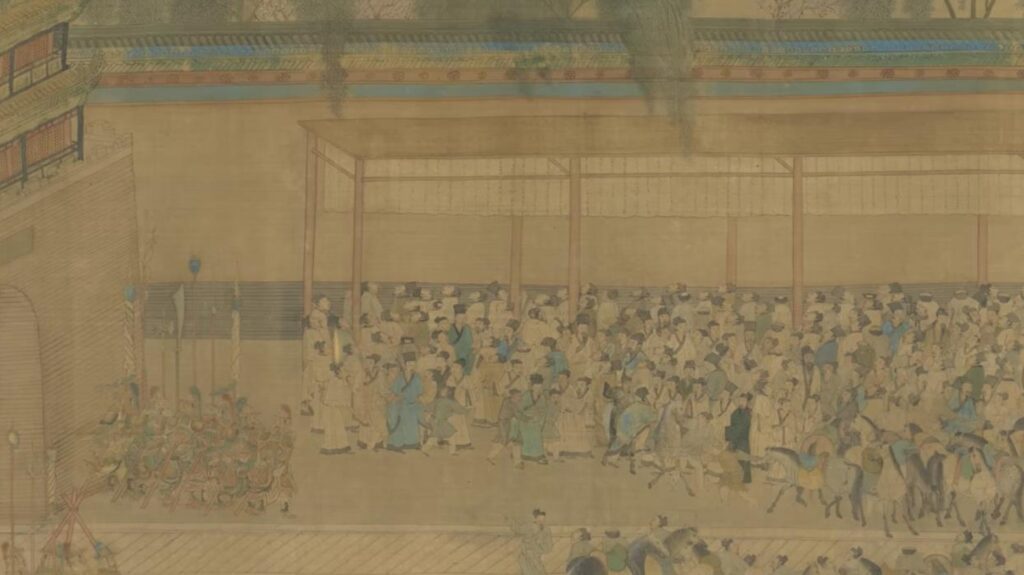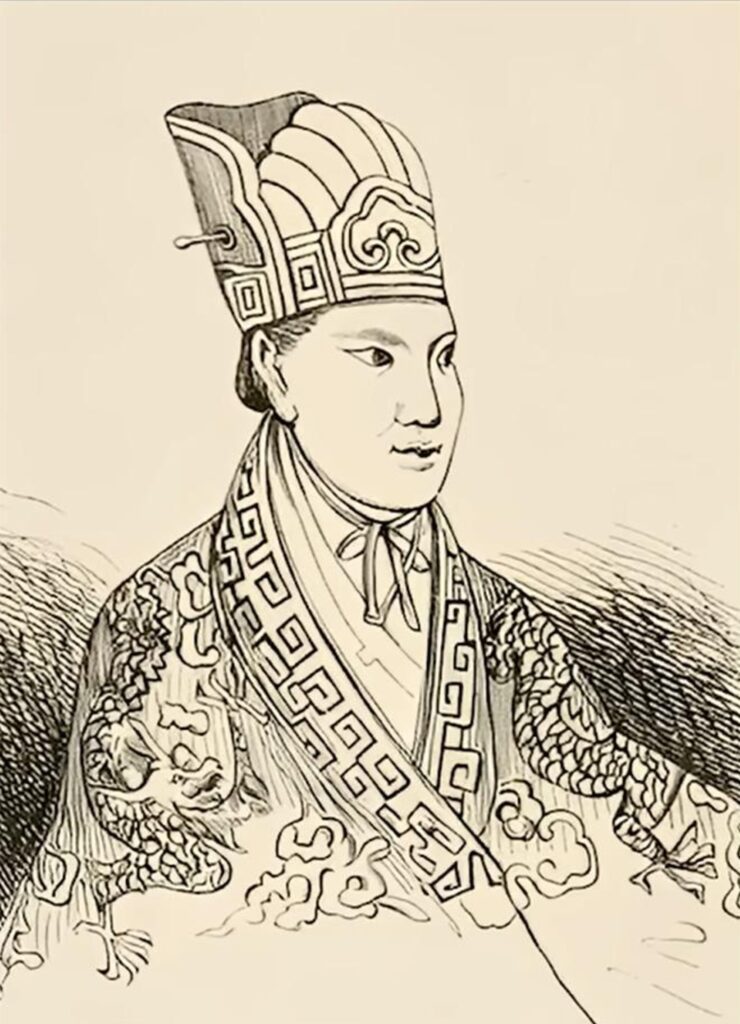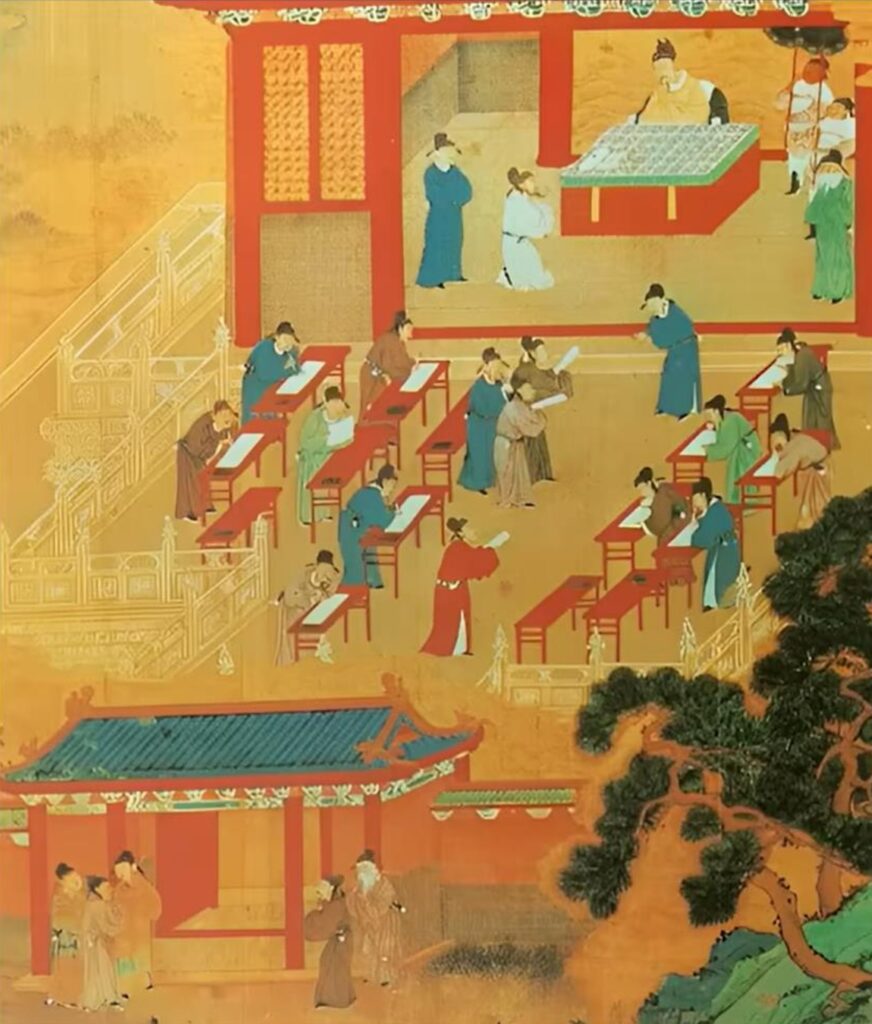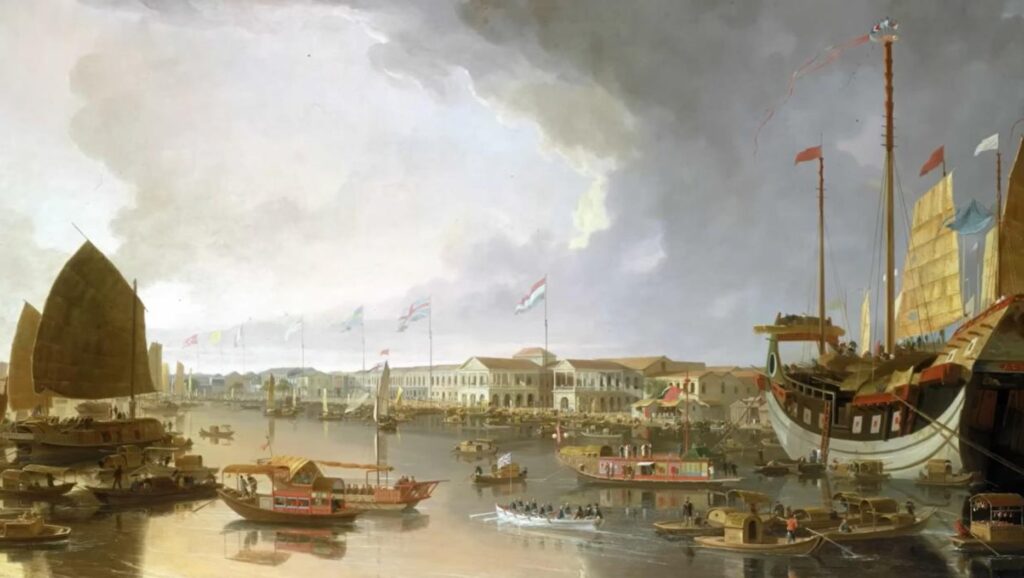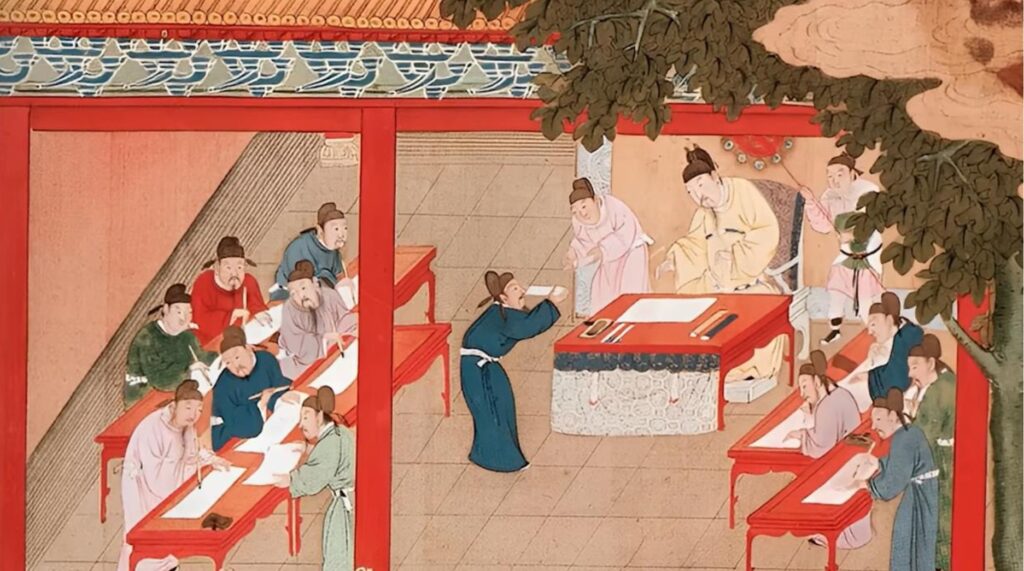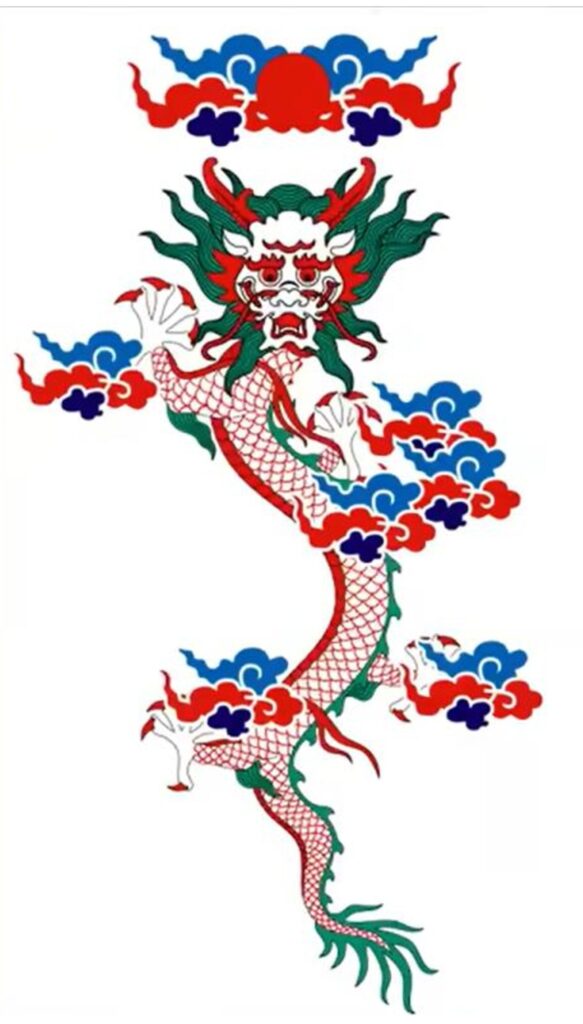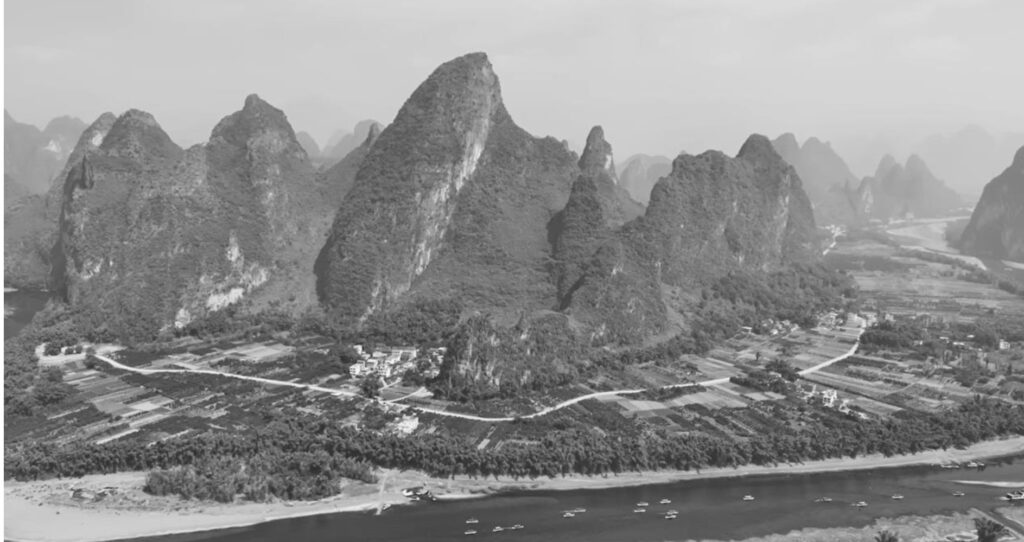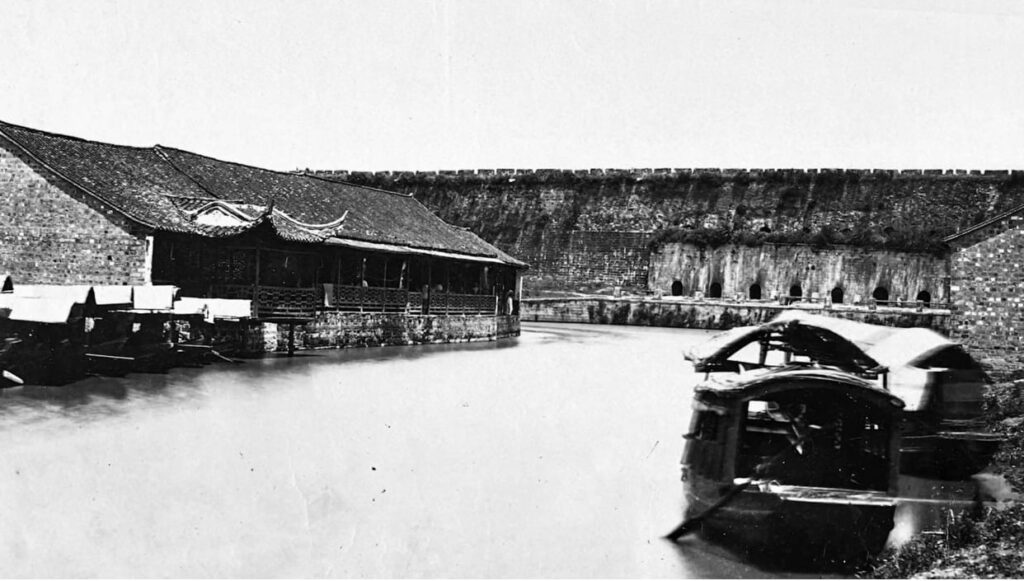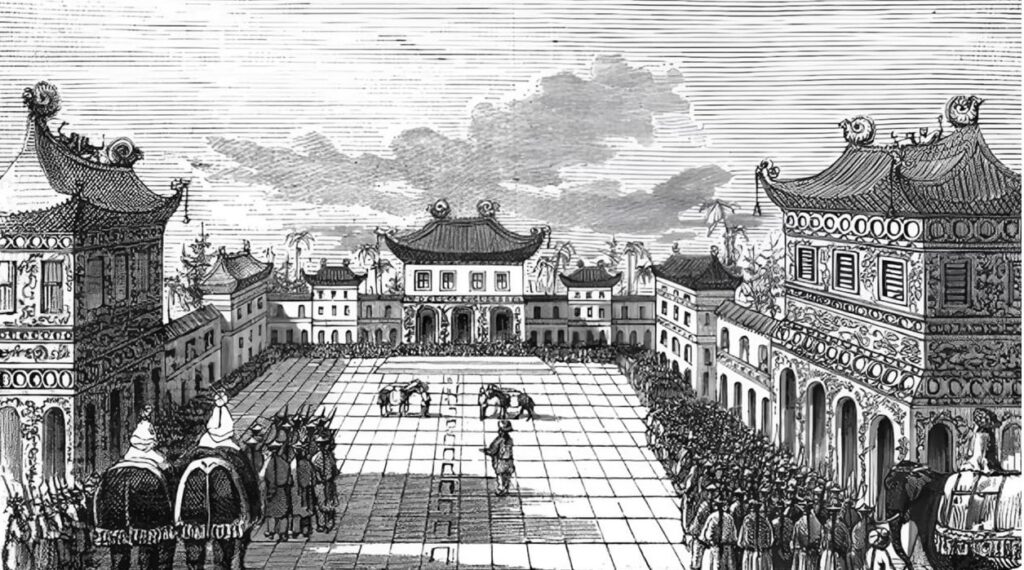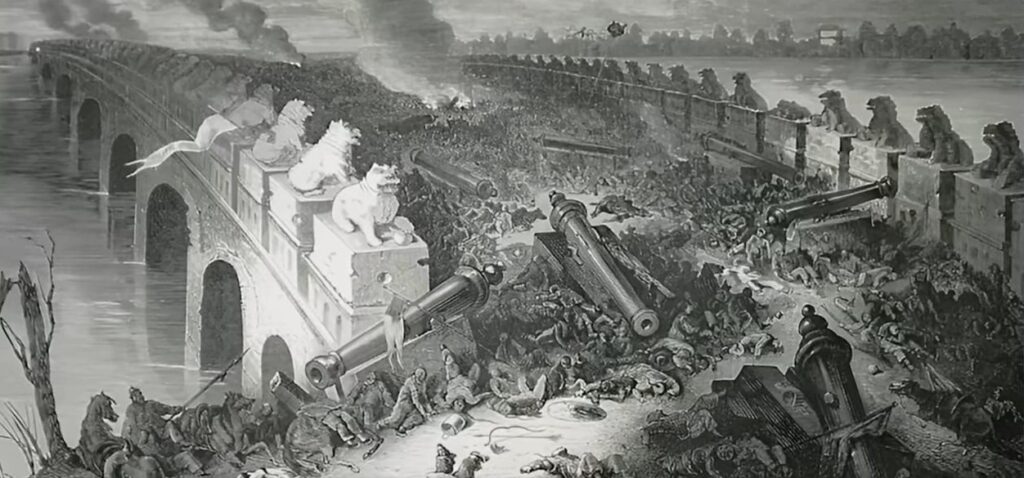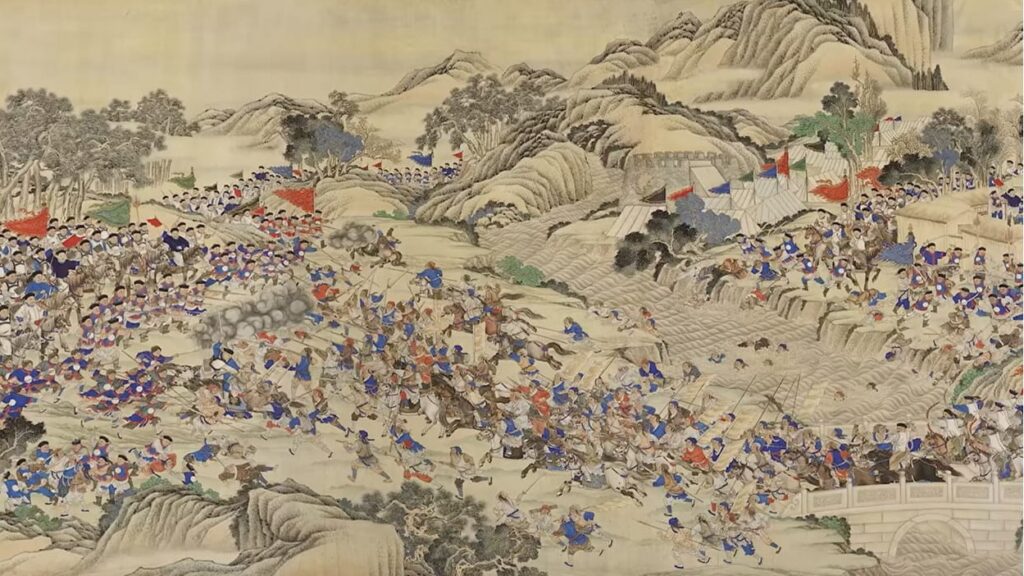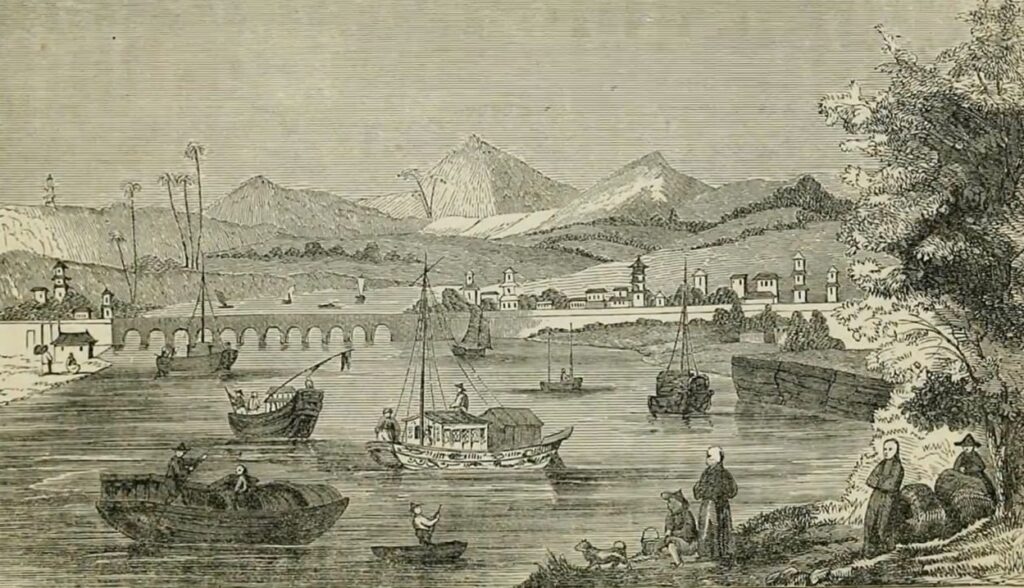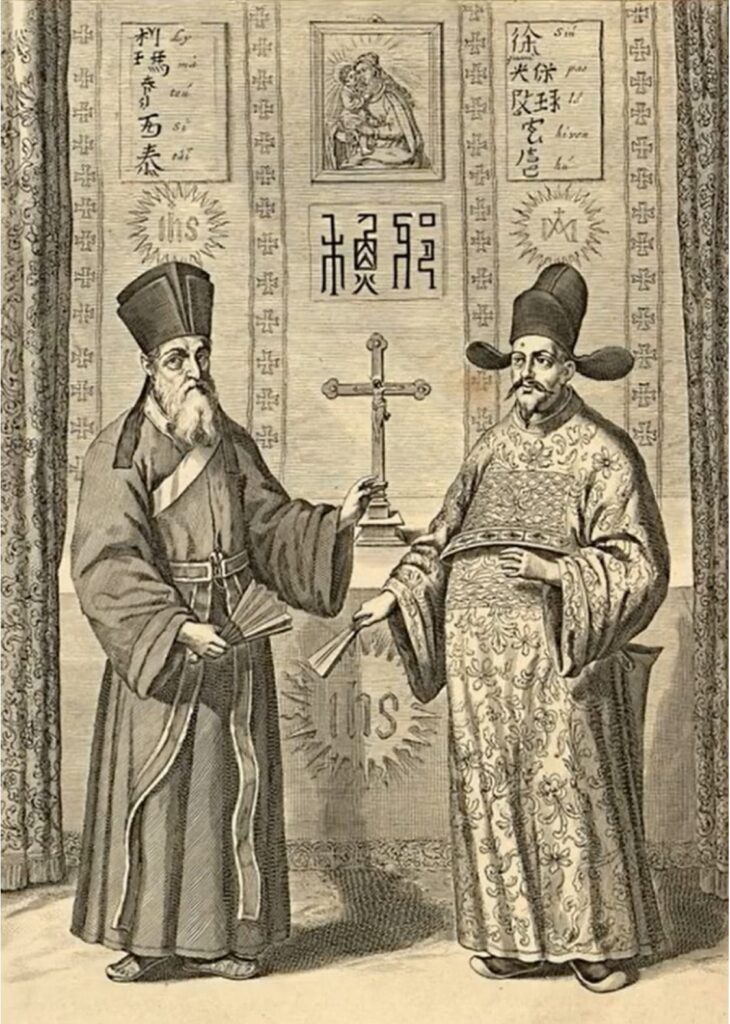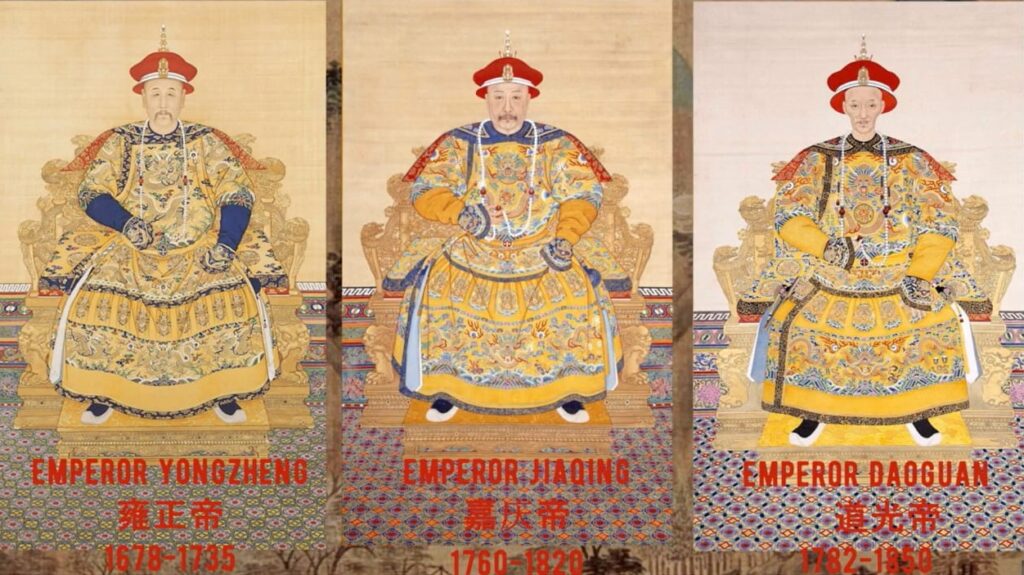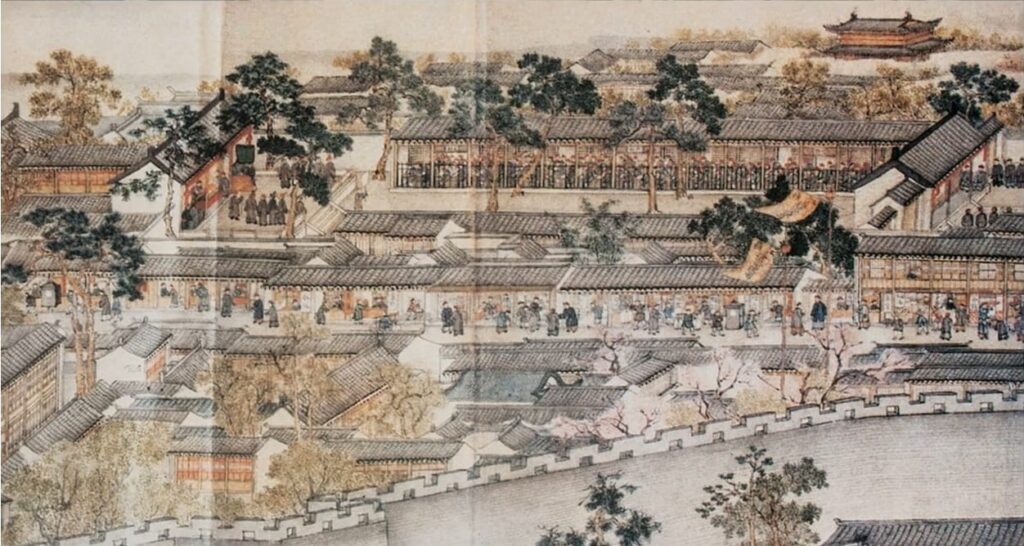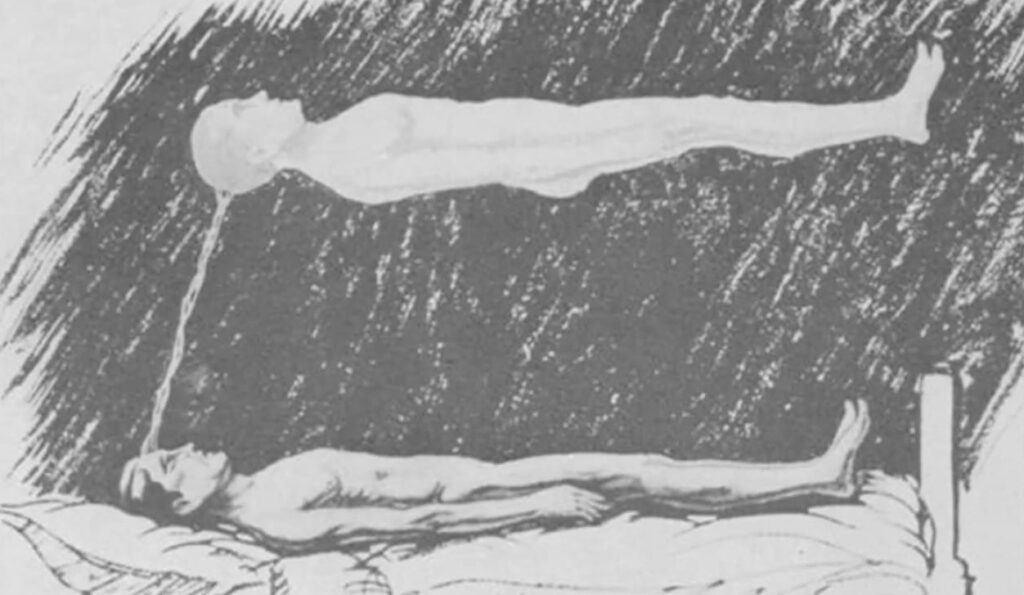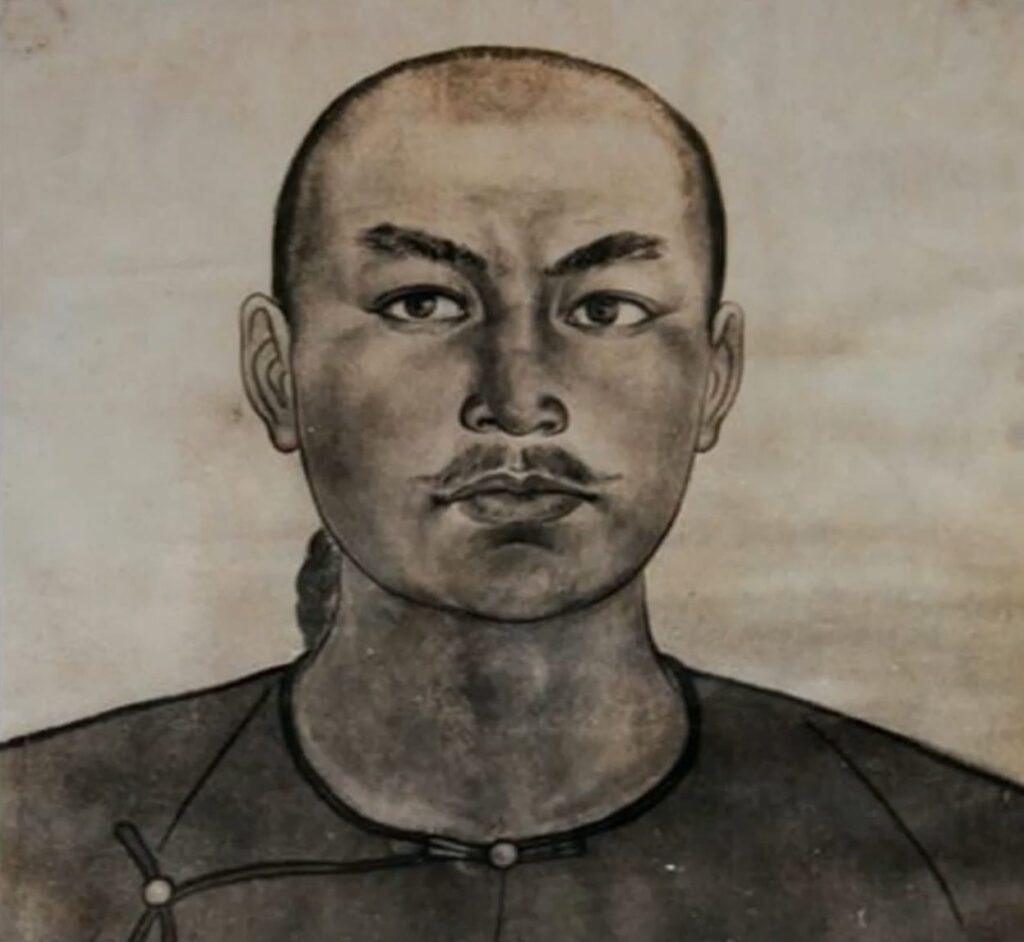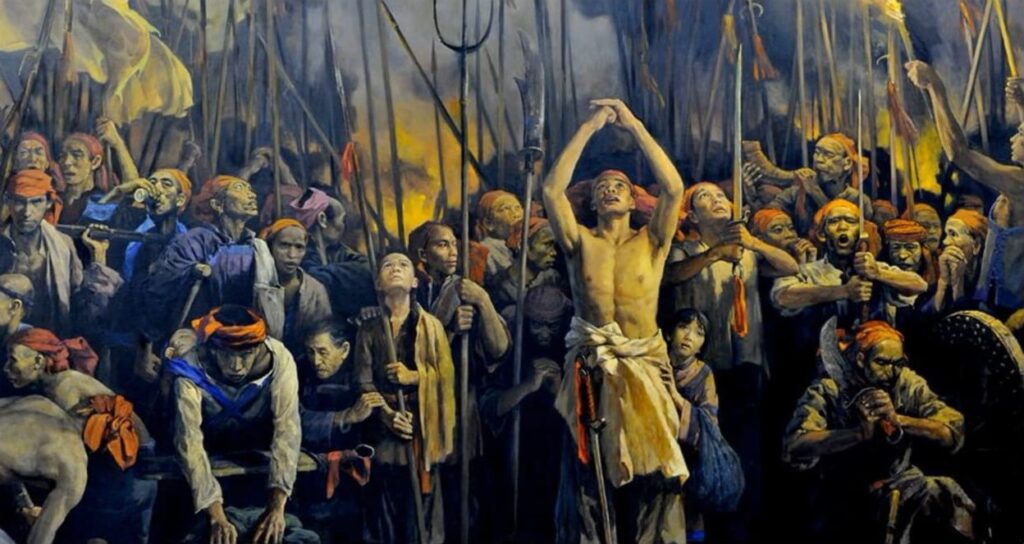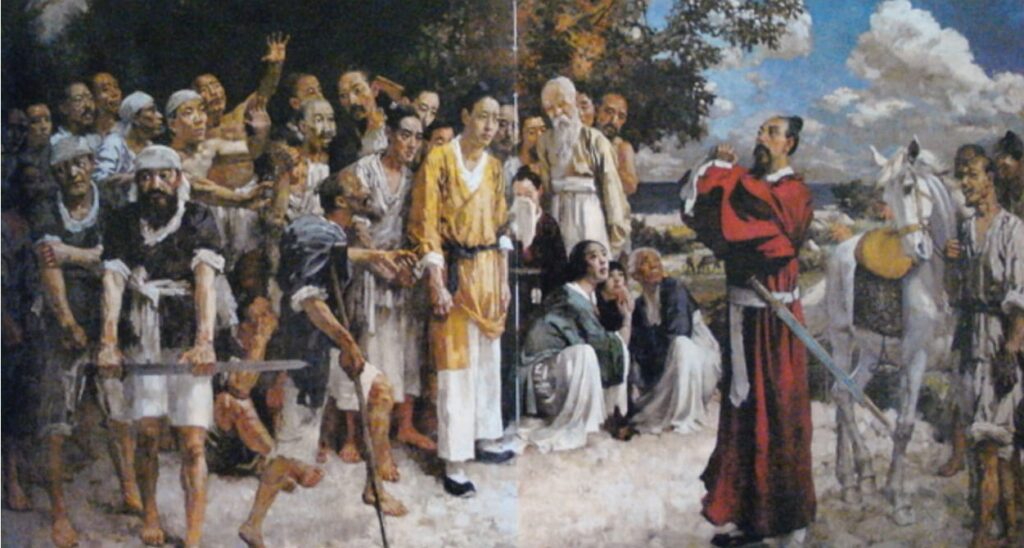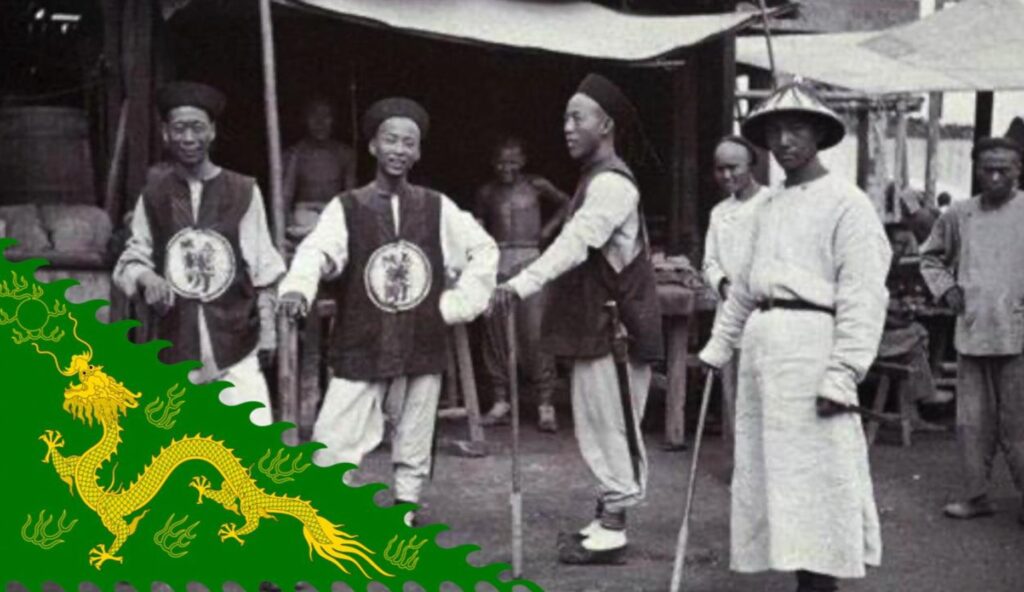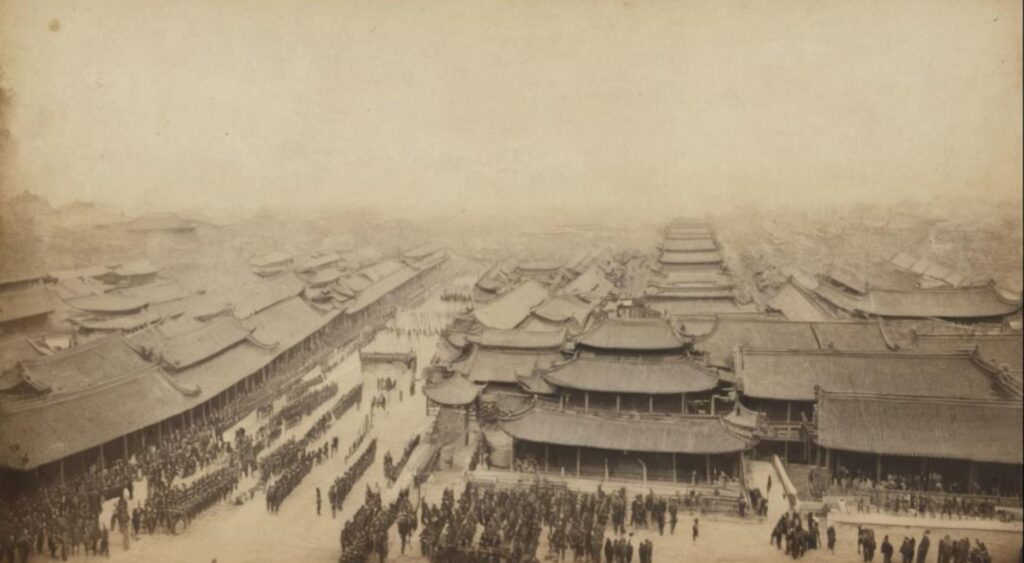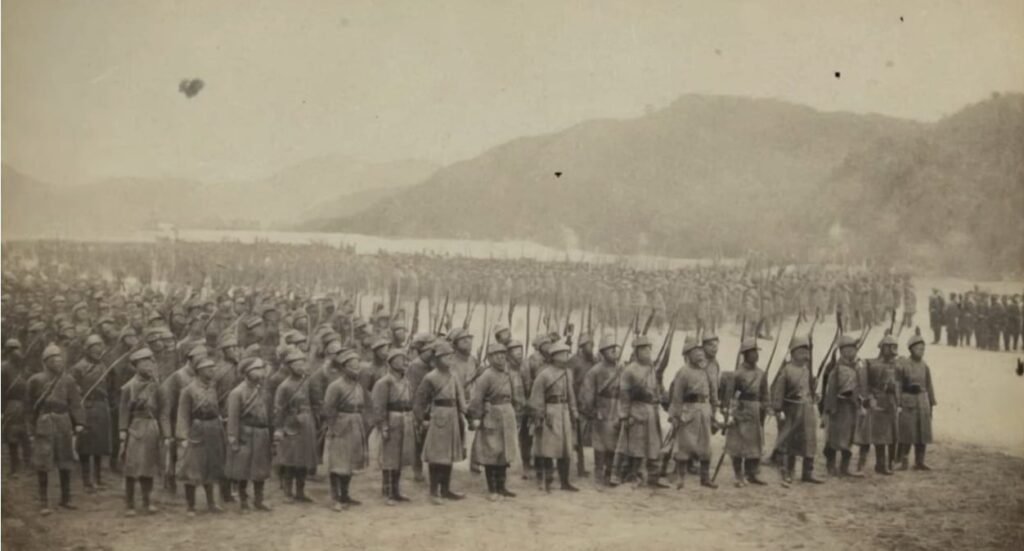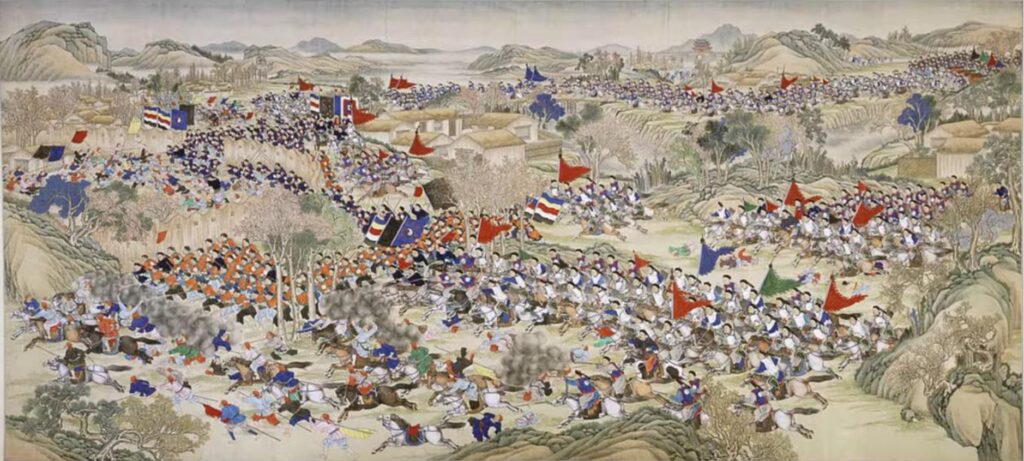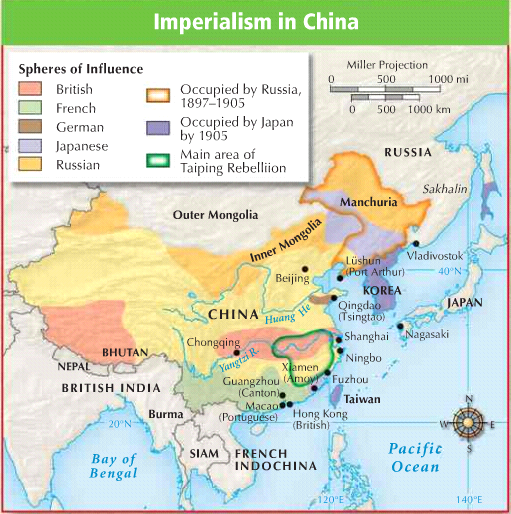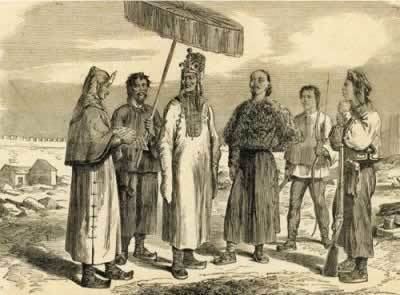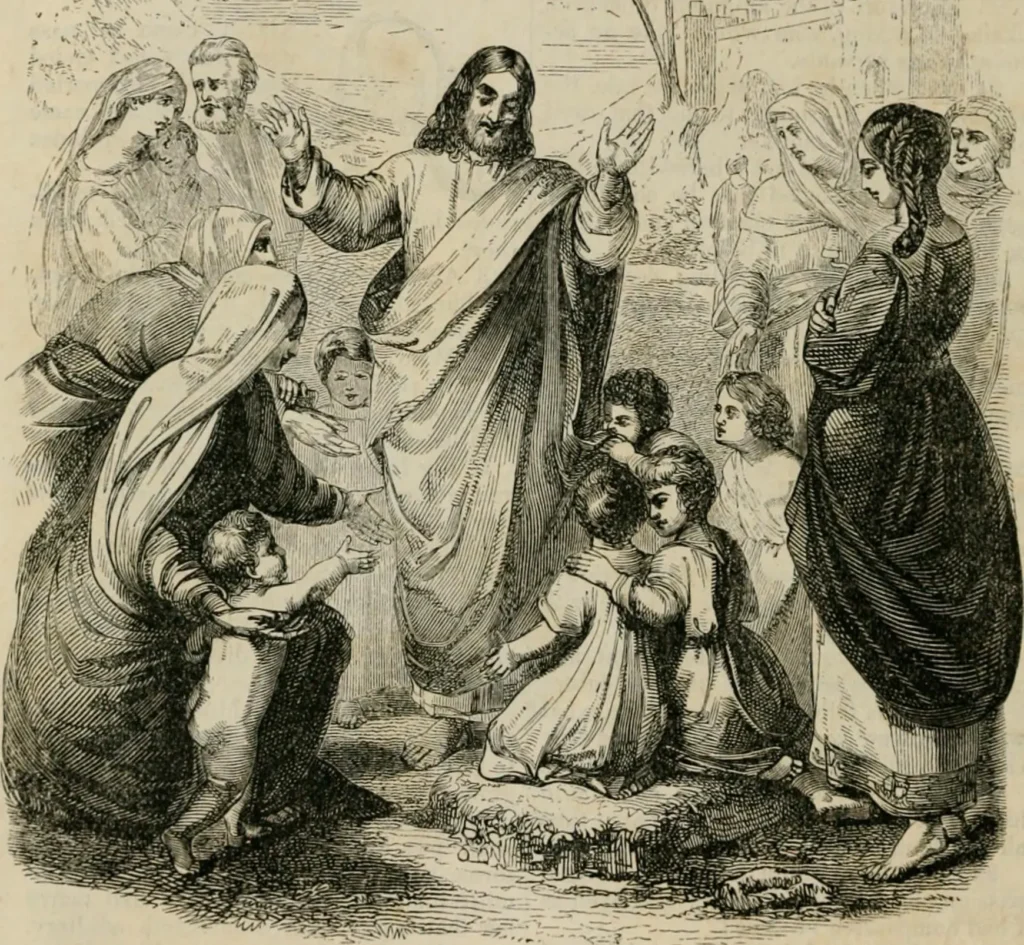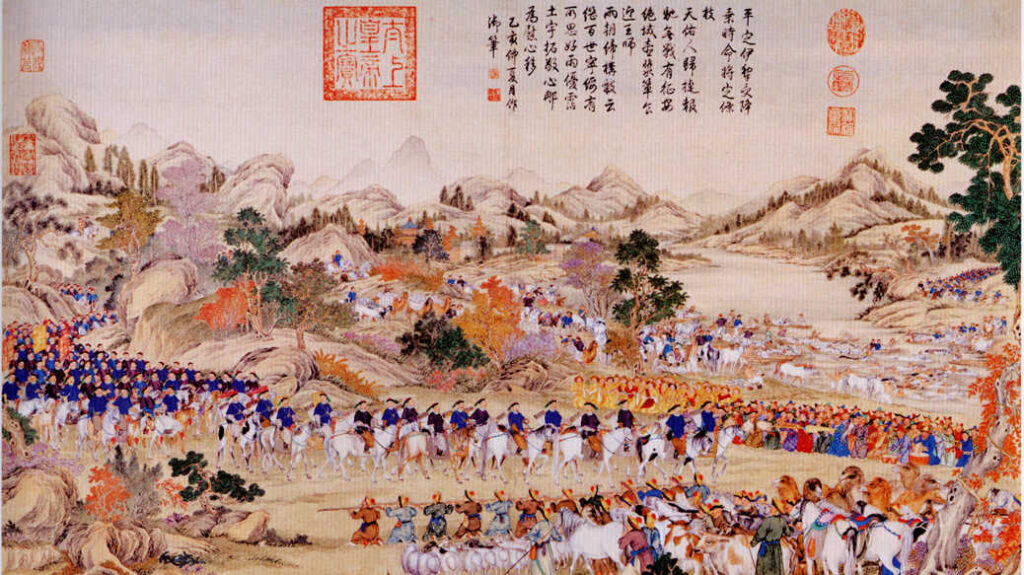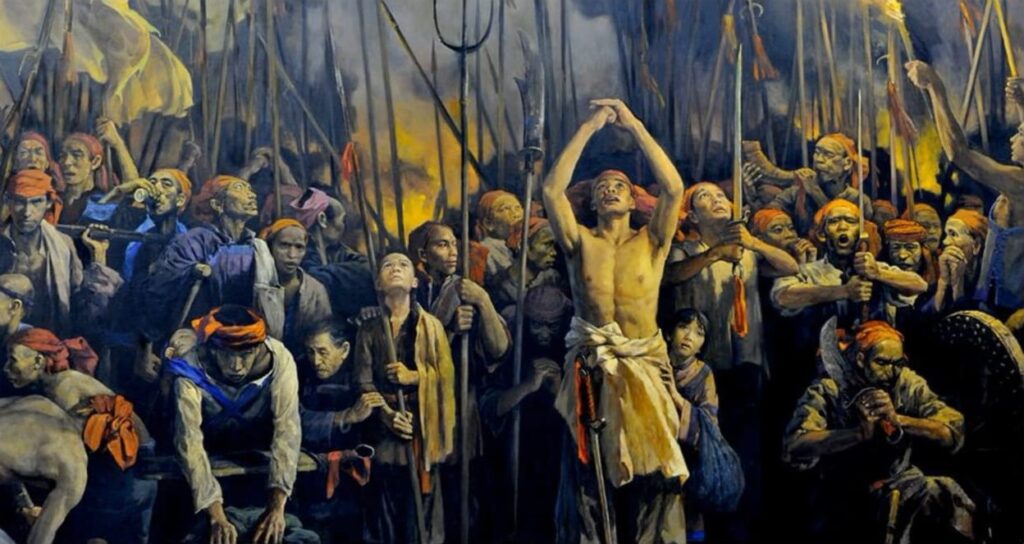
The Taiping Rebellion (1850–1864) was one of the deadliest and most transformative conflicts in human history. It shook the very foundation of the Qing Dynasty, claimed over 20 million lives, and changed the socio-political landscape of China forever. Despite its massive impact, it remains relatively unknown outside of East Asia. This detailed blog aims to provide a comprehensive understanding of the Taiping Rebellion, exploring its origins, ideologies, leaders, battles, and long-term consequences.
Table of Contents:
- Introduction: Why the Taiping Rebellion Matters
- Historical Background: China Before the Rebellion
- The Visionary Leader: Hong Xiuquan
- The Rise of the Taiping Heavenly Kingdom
- Religious Ideologies and Reforms
- Social and Economic Reforms
- Military Strategies and Key Battles
- Role of Women in the Taiping Movement
- The Fall of the Taiping Heavenly Kingdom
- Impact and Legacy
- 50 Frequently Asked Questions (FAQs)
- Conclusion: Lessons from the Taiping Rebellion
1. Introduction: Why the Taiping Rebellion Matters
The Taiping Rebellion was no ordinary civil war. It was:
- A religious crusade led by Hong Xiuquan, who claimed to be the younger brother of Jesus Christ.
- A social revolution that challenged the traditional Confucian order.
- A political rebellion against the Manchu-led Qing Dynasty.
- A cultural clash that merged Christian and Chinese religious beliefs.
It influenced future Chinese uprisings, including the Boxer Rebellion and the Chinese Communist Revolution. The rebellion’s blend of religious zeal, radical reforms, and military might made it one of the most complex events in Chinese history.
2. Historical Background: China Before the Rebellion
The Qing Dynasty: A Kingdom in Crisis
- Corruption and Inefficiency: The Qing administration was riddled with corruption.
- Economic Struggles: Heavy taxation, widespread poverty, and unequal land distribution created public resentment.
- Foreign Intrusion: Defeats in the Opium Wars against Western powers led to economic exploitation and national humiliation.
- Social Unrest: Ethnic tensions, particularly between the ruling Manchu minority and the Han Chinese majority, fueled discontent.
Religious Context
- Traditional religions included Confucianism, Daoism (Taoism), and Buddhism.
- Christianity was spreading, brought by Western missionaries, influencing Hong Xiuquan.
3. The Visionary Leader: Hong Xiuquan
Early Life and Religious Revelation
- Born in 1814 in Guangdong Province, Hong was a Hakka Chinese who repeatedly failed the imperial civil service examinations.
- In 1837, after his fourth failure, he fell ill and claimed to have visions where he met God and Jesus Christ.
- He interpreted these visions as proof that he was Jesus’s younger brother, destined to save China from the “demon” Manchu rulers.
The Creation of a New Religion
- Hong mixed Christian teachings with traditional Chinese beliefs, creating the Taiping Christianity.
- He published the “Good Words to Admonish the Age”, promoting his religious vision.
- He opposed Confucianism, Daoism, and Buddhism, labeling them as demon-worship.
4. The Rise of the Taiping Heavenly Kingdom
The Beginnings of Rebellion
- In 1851, Hong declared the founding of the Taiping Heavenly Kingdom.
- The Jintian Uprising marked the start of open rebellion against the Qing Dynasty.
- By 1853, the Taiping army captured Nanjing, renaming it Tianjing (Heavenly Capital).
Structure of the Taiping Government
- Theocratic Monarchy: Hong was the Heavenly King.
- Administrative Hierarchy: The kingdom was divided into regions, governed by his Five Kings:
- Yang Xiuqing – East King
- Xiao Chaogui – West King
- Feng Yunshan – South King
- Wei Changhui – North King
- Shi Dakai – Wing King
Military Expansion and Conquests
- The Taiping army grew to over 1 million soldiers.
- They captured large parts of southern and central China, including Hunan, Jiangxi, Anhui, Zhejiang, and Jiangsu.
5. Religious Ideologies and Reforms
Unique Religious Beliefs
- Monotheism: Worship of the One True God (Shangdi), rejecting idols and traditional deities.
- Christian Ethics: Emphasis on moral behavior, honesty, and charity.
- Iconoclasm: Destruction of Confucian temples and Buddhist idols.
Religious Practices
- Daily Prayer and Bible Study in Chinese.
- Sabbath Worship: Observance of the Sabbath on Sunday.
- Strict Morality Codes: Prohibition of alcohol, opium, and gambling.
6. Social and Economic Reforms
Social Equality and Justice
- Gender Equality: Women were allowed to serve as soldiers and administrators.
- Prohibition of Foot-Binding: Promoted women’s rights.
Economic Reforms
- Communal Ownership of Property: All land was state-owned and distributed equally.
- Abolition of Private Property: Wealth was shared among the community.
Educational and Cultural Changes
- Universal Education: Promoted literacy and education for both men and women.
- Simplified Chinese Characters for easier learning.
7. Military Strategies and Key Battles
Innovative Military Tactics
- Highly Disciplined Armies: Strict military codes and discipline.
- Women Soldiers: Inclusion of women in combat roles.
- Guerrilla Warfare and Siege Tactics.
Major Battles
- Battle of Nanjing (1853): Taiping forces capture the Qing capital in southern China.
- Siege of Changsha (1852): Failed attempt to take Hunan’s capital.
- Battle of Shanghai (1861): Defeated by the Ever Victorious Army, led by Charles Gordon.
8. Role of Women in the Taiping Movement
- Women’s Army Units: Separate female military units.
- Social Reforms for Women: Equal land rights, education, and employment opportunities.
9. The Fall of the Taiping Heavenly Kingdom
Internal Conflicts and Corruption
- Power Struggles among leaders.
- Assassination of Yang Xiuqing by rival Taiping kings.
- Hong Xiuquan’s Withdrawal into religious isolation.
Qing Dynasty’s Counterattack
- Western Aid: Qing forces received military support from Britain and France.
- Ever Victorious Army: Led by Frederick Townsend Ward and Charles Gordon.
- Siege of Nanjing (1864): Fall of the Taiping capital, leading to Hong Xiuquan’s death.
10. Impact and Legacy
- Massive Death Toll: Estimated 20-30 million deaths.
- Economic Devastation: Large-scale destruction of agricultural and urban areas.
- Weakening of Qing Dynasty: Paved the way for later uprisings, including the Boxer Rebellion and the Xinhai Revolution.
- Influence on Chinese Communism: Ideals of social equality and communal ownership inspired future Chinese revolutionaries.
I will now prepare 50 unique and frequently asked questions and their detailed answers.
The Taiping Rebellion (1850–1864) was a monumental civil war in China, led by Hong Xiuquan, who claimed to be the younger brother of Jesus Christ. This rebellion aimed to overthrow the Qing Dynasty and establish the Taiping Heavenly Kingdom, introducing radical social, economic, and religious reforms. The conflict resulted in an estimated 20 to 30 million deaths, making it one of the deadliest wars in history.
50 Frequently Asked Questions about the Taiping Rebellion:
- What were the primary causes of the Taiping Rebellion?
- The rebellion was fueled by widespread dissatisfaction with the Qing Dynasty due to corruption, economic hardship, and social inequality. Hong Xiuquan’s unique religious visions and desire to establish a new, egalitarian society also played a crucial role.
- How did Hong Xiuquan’s religious beliefs influence the rebellion?
- Hong’s belief that he was the younger brother of Jesus Christ led him to create a syncretic religion combining elements of Christianity with traditional Chinese beliefs, which became the ideological foundation of the Taiping movement.
- What was the Taiping Heavenly Kingdom?
- It was a theocratic and militaristic state established by the Taiping rebels, with its capital at Nanjing (renamed Tianjing), aiming to implement their religious and social reforms across China.
- How did the Taiping Rebellion impact China’s population?
- The rebellion led to massive loss of life, with estimates ranging from 20 to 30 million deaths due to warfare, famine, and disease.
- What were the main social reforms proposed by the Taiping leaders?
- They advocated for gender equality, communal ownership of land, abolition of foot-binding, and the eradication of opium use.
- How did the Taiping army differ from the Qing forces?
- The Taiping army was known for its strict discipline, inclusion of women in combat roles, and a strong ideological commitment to their cause, contrasting with the often corrupt and demoralized Qing forces.
- What role did foreign powers play in the Taiping Rebellion?
- Initially neutral, foreign powers like Britain and France eventually supported the Qing Dynasty, fearing the instability the Taiping movement could bring to their economic interests in China.
- How did the Taiping Rebellion affect China’s economy?
- The prolonged conflict devastated agricultural production, disrupted trade, and led to widespread famine and economic hardship.
- What was the significance of Nanjing during the rebellion?
- Nanjing served as the capital of the Taiping Heavenly Kingdom and was a strategic and symbolic center of the rebellion until its fall in 1864.
- How did the Qing Dynasty eventually suppress the rebellion?
- The Qing government, with assistance from foreign military advisors and modernized armies like the “Ever Victorious Army,” gradually recaptured territory and ultimately besieged and took Nanjing, leading to the collapse of the Taiping movement.
- What were the Taiping views on traditional Chinese religions?
- The Taiping leadership denounced Confucianism, Buddhism, and Daoism as corrupt and sought to replace them with their own brand of Christianity.
- How did the Taiping Rebellion influence future Chinese uprisings?
- The rebellion exposed the weaknesses of the Qing Dynasty and inspired future revolutionary movements, including the 1911 Revolution that eventually led to the establishment of the Republic of China.
- What was the role of women in the Taiping movement?
- Women in the Taiping Heavenly Kingdom enjoyed greater rights, including participation in the military and civil administration, challenging traditional gender roles in Chinese society.
- How did the Taiping leaders finance their operations?
- They relied on the confiscation of land and wealth from conquered territories, as well as the establishment of communal wealth-sharing systems.
- What were the internal challenges faced by the Taiping leadership?
- The movement suffered from internal power struggles, corruption, and differing visions among its leaders, which weakened their cohesion and effectiveness.
- How did the Taiping Rebellion impact China’s infrastructure?
- The prolonged warfare led to the destruction of cities, transportation networks, and agricultural lands, setting back China’s infrastructure development significantly.
- What was the “Ever Victorious Army”?
- A Qing-allied military force led by foreign officers, notably American Frederick Townsend Ward and later British Major Charles Gordon, instrumental in countering Taiping advances.
- How did the Taiping Rebellion affect Qing military reforms?
- The challenges posed by the rebellion prompted the Qing Dynasty to modernize its military, incorporating Western training and technology to strengthen their forces.
- What was the global perception of the Taiping Rebellion?
- While some international observers were sympathetic to the Taiping’s Christian elements, most foreign governments prioritized stability and their own interests, leading them to support the Qing Dynasty.
- How did the Taiping Rebellion influence Chinese art and culture?
- The rebellion led to the destruction of cultural heritage sites but also inspired a wave of literature and art reflecting the era’s turmoil and the desire for reform.
- What was the fate of Hong Xiuquan?
- Facing imminent defeat, Hong Xiuquan died in 1864, with some accounts suggesting illness and others implying suicide.
- How did the Taiping Rebellion impact China’s foreign relations?
- The internal chaos made China more vulnerable to foreign influence and intervention, leading to unequal treaties and increased foreign control over Chinese trade and territory.
- What were the Taiping policies on land distribution?
- They implemented a system of communal land ownership, aiming to eliminate social inequalities by distributing land based on family size and need.
- How did the Taiping Rebellion affect neighboring regions?
- The instability spilled over into neighboring areas, disrupting regional trade and prompting neighboring countries to reassess their diplomatic and military strategies concerning China.
- What was the significance of the Taiping Rebellion in Chinese history?
- The Taiping Rebellion exposed the weaknesses of the Qing Dynasty, inspired future revolutionary movements, and significantly influenced China’s social, political, and religious landscape.
- What was the significance of the Taiping Rebellion in Chinese history?
- The Taiping Rebellion was a turning point in Chinese history, exposing the weaknesses of the Qing Dynasty and setting the stage for modernization and future revolutionary movements.
- How did the Taiping leaders communicate their ideologies?
- They used printed pamphlets, religious texts, and public sermons to spread their vision of social equality, religious reform, and anti-Qing sentiments.
- What were the educational reforms introduced by the Taiping?
- They promoted universal literacy, simplified Chinese characters, and emphasized moral and religious education for all genders.
- How did the Taiping movement influence Chinese nationalism?
- Their anti-Manchu rhetoric contributed to the rise of Han Chinese nationalism, which later influenced revolutionary leaders like Sun Yat-sen.
- What was the relationship between the Taiping and other contemporary rebellions?
- The Taiping coexisted with other uprisings like the Nian Rebellion and Muslim Rebellions, sometimes allying and at other times competing for power and territory.
- How did the Qing government depict the Taiping in official records?
- The Qing portrayed the Taiping as heretical rebels to justify harsh military suppression and maintain their legitimacy.
- What role did propaganda play in the Taiping Rebellion?
- Both the Taiping and Qing used propaganda to mobilize support and demonize each other, influencing public perception and morale.
- Were there any international observers of the Taiping Rebellion?
- Yes, Western missionaries, diplomats, and military officers documented their experiences, providing valuable historical insights.
- How did the Taiping organize their military hierarchy?
- Their military was structured in a highly organized manner, with divisions of tens, hundreds, thousands, and tens of thousands, commanded by appointed officers.
- What was the role of music and culture in the Taiping society?
- The Taiping composed religious hymns, banned traditional operas, and promoted Christian-inspired cultural practices.
- How did the Taiping view the Emperor of China?
- They considered the Qing Emperor as a demon king and justified their rebellion as a divine mission to overthrow him.
- Did the Taiping have any foreign allies?
- Although they reached out to Western missionaries, they failed to secure any substantial foreign alliances due to ideological differences.
- How did the Taiping Rebellion affect Confucian scholars and officials?
- Confucian scholars were targeted for persecution, and traditional Confucian education was replaced with Taiping religious teachings.
- What were the Taiping policies on crime and punishment?
- They enforced strict moral codes with harsh punishments for theft, adultery, and other crimes, maintaining social order through fear and discipline.
- How did the Taiping handle diplomacy with neighboring kingdoms?
- They attempted diplomatic relations with Japan and Southeast Asian kingdoms but were largely unsuccessful due to their radical ideology.
- What technological advancements were made during the Taiping Rebellion?
- The Taiping manufactured their own firearms, cannons, and gunpowder, innovating with limited resources.
- How did the Taiping Rebellion impact traditional Chinese festivals and rituals?
- They abolished traditional festivals, ancestor worship, and other cultural rituals deemed incompatible with their religious beliefs.
- What was the legacy of the Taiping Rebellion in Chinese literature?
- The rebellion inspired historical novels, poems, and plays, reflecting the social upheaval and heroism of the era.
- How did the Taiping handle famine and food shortages?
- They implemented communal food distribution systems but struggled to sustain their population during prolonged sieges.
- What role did espionage and intelligence play in the Taiping Rebellion?
- Both the Taiping and Qing employed spies and informants, using intelligence networks to infiltrate and sabotage enemy operations.
- Did any Taiping leaders survive after the rebellion?
- A few leaders escaped and continued resistance in remote regions, but most were captured and executed by Qing forces.
- How did the Taiping influence religious movements in China?
- Their unique blend of Christianity and Chinese traditions inspired later religious sects, including the Boxer Rebellion’s anti-foreign religious fervor.
- What were the environmental impacts of the Taiping Rebellion?
- Massive deforestation, agricultural devastation, and population displacement led to long-term environmental degradation.
- How did the Taiping Rebellion influence the Chinese diaspora?
- Many Chinese fled to Southeast Asia and North America, spreading cultural influences and contributing to the global Chinese diaspora.
- Why is the Taiping Rebellion still relevant today?
- Its themes of social justice, religious reform, and anti-authoritarianism resonate in modern Chinese political discourse and historical memory.
Conclusion: Lessons from the Taiping Rebellion
The Taiping Rebellion was not just a historical event but a social revolution that questioned traditional Chinese society’s foundations. It challenged the Confucian social order, promoted gender equality, and attempted to create a utopian society based on a unique blend of Christian and Chinese religious beliefs. Its impact on Chinese nationalism, political reform, and religious movements continues to shape China’s history and cultural identity.
Key Takeaways:
- The rebellion exposed the vulnerabilities of the Qing Dynasty, paving the way for modern Chinese revolutions.
- It showcased the power of religious ideology in mobilizing mass movements.
- Its radical social reforms influenced future Chinese leaders, including Sun Yat-sen and Mao Zedong.
- The rebellion’s legacy serves as a reminder of the complex relationship between religion, politics, and social change.
This detailed exploration of the Taiping Rebellion provides a comprehensive understanding of one of history’s most significant and misunderstood conflicts. Its lessons are as relevant today as they were in the 19th century, offering insights into leadership, social reform, and cultural transformation.
